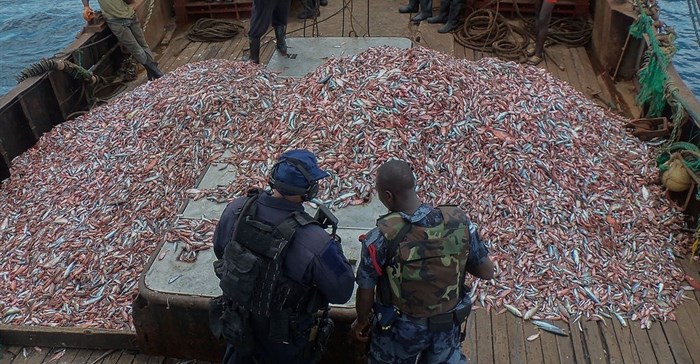
The FAO Director-General also provided United States Secretary of State John Kerry with an update on the status of the treaty, which came into force in June. "In 2014 only 10 nations had ratified the PSMA," Kerry noted in his conference address. "All of us then decided that we could do better and we did... because more than 60 nations have now ratified the PSMA and that is critical," he added.
The FAO director-general, urged all other countries to follow suit in adhering to the treaty. "We need everyone to come onboard, otherwise rogue fishing vessels will continue to find ways to land and introduce their illegal catches into the markets of non-PSMA countries," he added.
Graziano da Silva likened adherence to the treaty to the international community's commitment to achieving the Sustainable Development Goals, "a situation in which no one can be left behind." Under the treaty, parties are obliged to implement a number of measures while managing ports under their control, to detect illegal fishing, preventing ill-caught fish from being offloaded and sold, and ensuring that information on unscrupulous vessels is shared globally.
FAO has launched a global programme to support countries with the implementation of the treaty and complimentary instruments, Graziano da Silva said. These include the Voluntary Guidelines on Flag State Performance, which spell out a range of actions that countries can take to ensure that vessels registered under their flags do not conduct illegal, unreported and unregulated (IUU) fishing.
So far FAO has secured $5 million for this global programme, including funding from the organisation's own resources.
FAO is also collaborating with Google to develop new platforms and research methodologies to support countries in improving their monitoring, control and surveillance of fishing activities.
Each year, IUU fishing is responsible for annual catches of up to 26 million tonnes, with a value of up to USD 23 billion. It also undermines efforts to ensure sustainable fisheries and responsible fish stock management around the world.
Graziano da Silva also stressed to the Our Ocean Conference participants the need to increase support for small-scale fisheries on which 110 million people - 97 percent of them in developing countries - depend for their livelihoods. "They are among the poorest communities in the world and they risk to be further marginalised," the FAO director-general warned.
He called on donors to support an ongoing FAO initiative that is aimed at providing policy support, promoting the sharing of experiences and empowering small-scale fisheries communities in the context of poverty eradication. Some $2.5 million have already been secured for this work, but more support is needed.